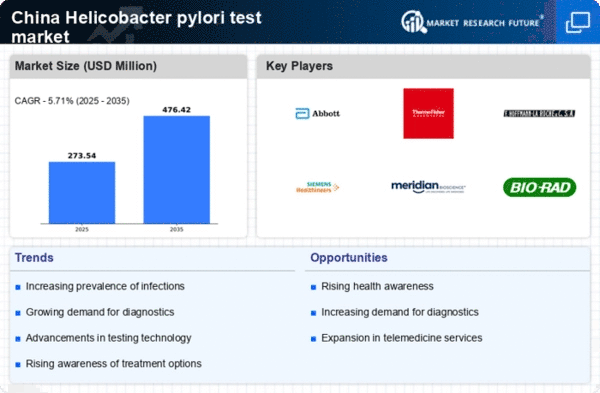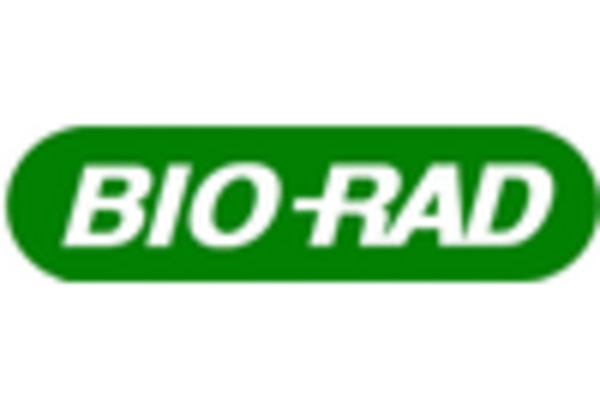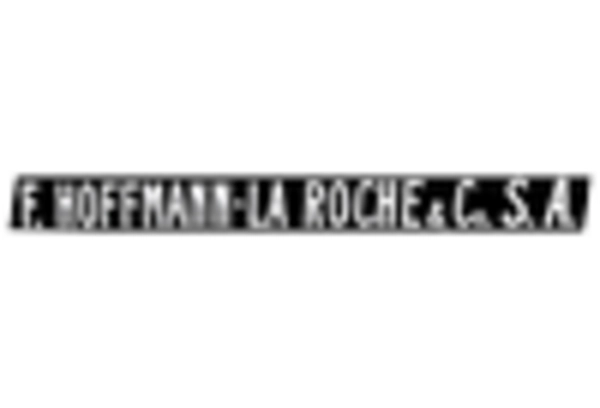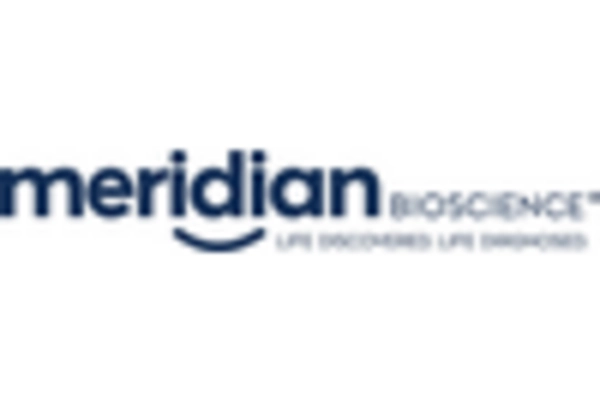Increase in Healthcare Expenditure
The rise in healthcare expenditure in China is a significant driver for the helicobacter pylori-test market. As the government and private sectors invest more in healthcare infrastructure, there is a corresponding increase in funding for diagnostic services. This financial support enables healthcare facilities to acquire advanced testing equipment and expand their testing capabilities. Moreover, as disposable incomes rise, individuals are more willing to invest in their health, leading to increased demand for diagnostic tests. It is estimated that healthcare spending in China could grow by 12% annually, further propelling the growth of the helicobacter pylori-test market as more people seek testing services.
Advancements in Diagnostic Technologies
Technological advancements in diagnostic methods are transforming the helicobacter pylori-test market. Innovations such as rapid antigen tests and molecular diagnostics are enhancing the accuracy and speed of testing. These advancements not only improve patient outcomes but also streamline the testing process, making it more efficient for healthcare providers. As these technologies become more widely adopted in China, the market is likely to witness a shift towards more sophisticated testing solutions. Analysts predict that the introduction of new diagnostic tools could lead to a market growth of approximately 10% annually, as healthcare facilities seek to implement the latest technologies to improve patient care.
Government Initiatives and Health Policies
Government initiatives aimed at improving public health in China significantly influence the helicobacter pylori-test market. The Chinese government has implemented various health policies to combat gastrointestinal diseases, including campaigns to raise awareness about Helicobacter pylori. These initiatives often include subsidized testing and treatment options, making it more accessible for the population. Furthermore, the government's focus on preventive healthcare is likely to drive the adoption of testing services. As a result, the market may experience a surge in demand, with an estimated increase in testing rates by 15% over the next few years, reflecting the government's commitment to enhancing healthcare outcomes.
Growing Awareness of Gastrointestinal Health
There is a notable increase in public awareness regarding gastrointestinal health in China, which serves as a catalyst for the helicobacter pylori-test market. Educational campaigns and media coverage have highlighted the importance of early detection and treatment of Helicobacter pylori infections. This heightened awareness is likely to lead to more individuals seeking testing, as they become cognizant of the potential complications associated with untreated infections. Market analysts suggest that this trend could result in a 20% increase in testing demand over the next five years, as consumers prioritize their health and seek proactive measures to address gastrointestinal issues.
Rising Prevalence of Helicobacter Pylori Infections
The increasing incidence of Helicobacter pylori infections in China is a primary driver for the helicobacter pylori-test market. Studies indicate that approximately 50% of the Chinese population may be infected with this bacterium, leading to various gastrointestinal disorders. This high prevalence necessitates effective screening and diagnostic measures, thereby boosting demand for testing solutions. As awareness of the health risks associated with untreated infections grows, healthcare providers are likely to recommend testing more frequently. Consequently, the market is expected to expand as more individuals seek diagnosis and treatment, contributing to a projected growth rate of around 8% annually in the coming years.
















